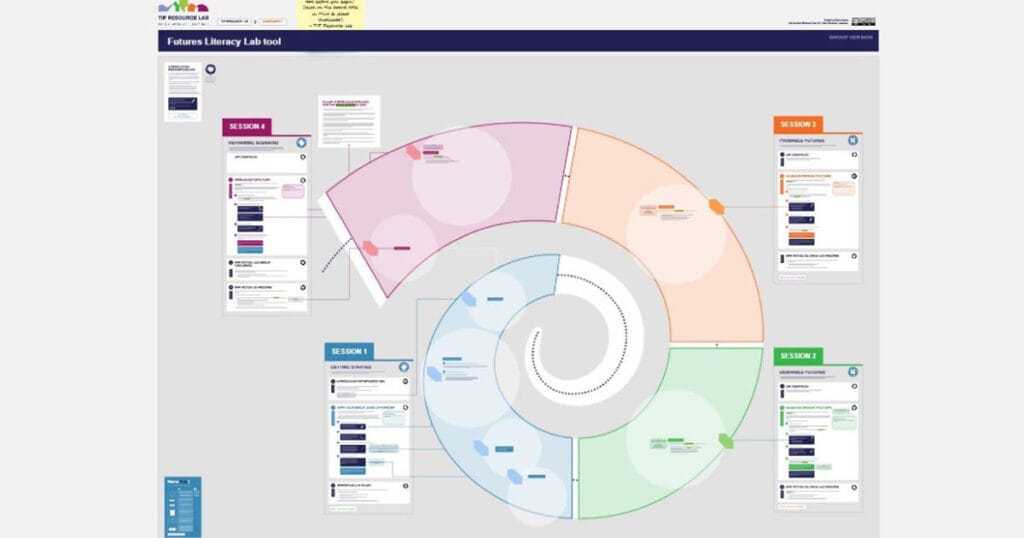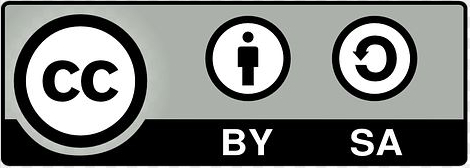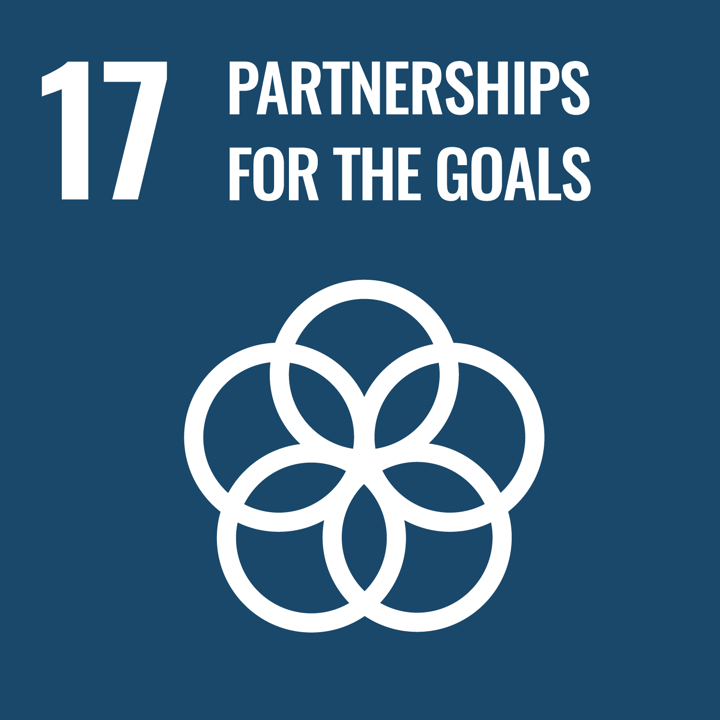
Utilizador final previsto: Professor
Grupo etário: Secundário inferior; Secundário superior
Currículo escolar: Social & Environment Science; Languages; Arts; Applied Science
Temas e tópicos: Futures Thinking; Information & Knowledge
Duração: 4 session (3 x 90 mins and 1 x 120 mins)
Tipo de recurso: Guidelines & Notes, Lesson Plans, Online Tool, Workshop
Palavras-chave: Futures Literacy, Imagination, Workshops, Online Tool, Student-Centred Learning
Línguas: Inglês
Descrição
O Laboratório de Literacia do Futuro was created by the Transformative Innovation Policy Consortium (TIPC), a multi-country initiative dedicated to how policymakers, academics and funding agencies can orientate science, technology and innovation towards transition and a more sustainable future.
This tool guides participants through a Futures Literacy Lab, a practical method to help us reveal, reframe and rethink the assumptions we use to imagine the future. It draws on TIPC’s Nordic members’ experience of running a Lab in partnership with UNESCO and The Nordic Institute for Studies in Innovation, Research and Education in 2021.
Participants in the Lab will exercise their imaginative capabilities and play with their images of the future. The point is not to predict the future, but to explore different stories about it, and to use these stories to reflect on our preconceptions about social, cultural, economic, environmental and technological drivers.
This is a capacity development activity and may lead to second order learning in relation to the assumptions and underlying beliefs influencing a TIP theory of change.
Como utilizar este recurso
The tool is for use by participants during a facilitated workshop series. It is not designed to be self-facilitated and requires (a) one lead facilitator, (b) a team of small group facilitators, and (c) a group of participants, some of whom will act as rapporteurs.
If you are preparing to facilitate the sessions, please refer to the guidance for facilitators and the slides introducing the Futures Literacy Lab methodology.
Os recursos
Laboratório de Literacia do Futuro Guidance for Facilitators PDF:
The Tool: Future Literacy Lab and supporting resources can be accessed on the TIP Resource Lab website (here).
Other Futures Literacy resources hosted by the TIP Resource Lab can be accessed here.
O UNESCO Futures Literacy & Foresight website provides additional information and resources to understand the importance of futures literacy in preparing recovering and inventing is the face of change.
Resultados de aprendizagem (professores)
- Obter conhecimentos prévios e aprofundar o conhecimento e a compreensão dos conceitos-chave da Cidadania para a Sustentabilidade, desafiando as visões do mundo e os valores estabelecidos.
- Aplicar uma série de ferramentas e quadros adequados para promover a Cidadania para a Sustentabilidade dos estudantes
- Refletir sobre a prática e examinar os programas curriculares nacionais para identificar oportunidades de promover a Cidadania para a Sustentabilidade de forma interdisciplinar e envolver as partes interessadas externas.
- Sintetizar de forma colaborativa os conhecimentos, as ferramentas e os quadros para criar materiais didácticos e planos de aulas adaptados ao seu próprio contexto local
- Através de actividades de workshops e de comunidades de prática, desenvolver capacidades e agência enquanto educadores e líderes da Cidadania para a Sustentabilidade.
Competências verdes
- Incorporar valores sustentáveis: Valorização da sustentabilidade
- Abraçar a complexidade na sustentabilidade: Pensamento sistémico; Pensamento crítico; Enquadramento de problemas
- Perspectivas de futuros sustentáveis: Literacia do futuro; Adaptabilidade; Pensamento exploratório
- Agir em prol da sustentabilidade: Ação colectiva; iniciativa individual
Creative Commons

The Resource Lab was created by the Transformative Innovation Policy Consortium (TIPC), a multi-country initiative dedicated to how policymakers, academics and funding agencies can orientate science, technology and innovation towards transition and a more sustainable future. The resources are shared here under Creative Commons License 4.0 Attribution and ShareAlike and with kind permission from TIPC.
ODS



